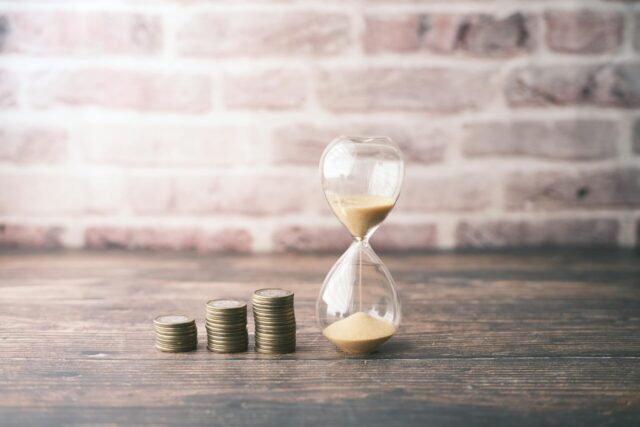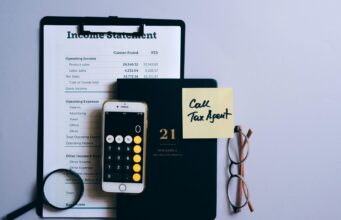
There is no real way to quantify the value of time so we’re going to attempt it right here. As we’ve stated many times in the past, health is by far the most important thing in life as the loss of health makes you 1) lose time and 2) lose money. Since time is more valuable than money, you actually suffer a huge loss as your time evaporates and health issues usually come at a severe financial cost. Lately, we’ve been focusing a bit more on paying attention to your body (massage therapy, diet etc.) and this is due to the natural slowdown past age 30-35 or so. Mathematically speaking, you’ve got a solid 30 years or so where life is at peak performance (age 20 to 50, where 20 is more energy specific and 50 is more freedom and money specific).
Value of Each Decade: One of the main themes around here is that if you give up a solid 3-5 years of your life (typically only takes 3 years), by the time you’re around 25-27 you’re so far ahead of the game that each decade gets better. So far, this has continued to be the case. The downside is when you look back in time and ask yourself “would I be able to do all that work in my mid 30s”, the ugly truth is a resounding no. No. We’re not saying “to give up” if you haven’t made it yet. All we’re doing is pointing out a simple fact of life, energy levels decline from your 20s to your mid-30s to your 40s etc. Instead of pondering about how to adjust for this we’re going to write it out here from actual experience.
Early 20s: This is where quantity over quality pays off without question. Everyone in their early 20s is drunk. They are partying in some way and going nowhere as they spend their entire paycheck every month. The funny thing is that their productivity at work doesn’t even take a hit as a person this young can easily party 3-4 nights a week without any hit to productivity. This is due to the value of youth. The reason why people say “youth is wasted on the young” is because that level of energy can be used to learn and produce hundreds of things at the same time with no real impact to the physical body. People like to “claim” your health is ruined by working long hours but the reality is partying or working hard leads to the same thing… literally no impact to your future health. Trying to do either of these things (working 80 hours a week) or partying late into the night extremely drunk 4 nights a week at age 35? Not going to be a pretty outcome.
Quantity over quality applies to practically everything here. It isn’t difficult to recall the ability to drink lower quality liquor and not even recognizing the difference between the “good stuff” and the “cheap stuff”. This is because your body is able to process everything from pasta to junk food to bad alcohol. Use this to your advantage. You can work extremely hard and still go out a 1-2x a week without severely impacting your future. A great set up. Try every single type of venture that comes to your mind, to rattle off a few here we go: 1) affiliate marketing, 2) a cheap brick and mortar, 3) a fixer upper real estate deal, 4) a fitness coaching idea and 5) absolute worst case scenario, a second job. In the end throwing a bunch of spaghetti at the wall and seeing what sticks is a good strategy here.
Time Value: Luckily, we maintain basic journals every single day. After over 20 years of data, we’ve noticed that it was possible to sleep ~6-7 hours a day and work 9-12 hours a day (one rest day) without feeling fatigued at all. When you hit your mid 30s, this just isn’t possible. Before jumping there we can run a quick calculation. 10 hours of “real focused work” per day is 60 hours a week. Then you add an additional 2 hours a day of “basic work” essentially grunt work that needs to be done, and you’re looking at 72 hours of productivity per week for anyone in the 18-25 years old age bracket. Reading the underlined part of sentence will make anyone over the age of 40 certainly feel tired and remember “wow this really was the amount of work in the past”
Mid-20s: Once you reach your mid-20s there is a slight change. Instead of working 72 hours productively, you’re likely in the 60-65 range. The interesting thing is there is no change to output, you’re simply much more efficient with your time. After trying hundreds of ideas, angles and projects, you have a much better idea of what won’t work and what will work… This allows you to reduce the number of hours spent due to decision making alone. Again. The actual productivity is just as high, the difference is that you’re getting more leverage from the hours you’re spending.
One of the major reasons why making it early pays off is that you know what you’re good at. Many people do the math and say if you make a million dollars by 30… by the time you’re 50 you’ll be worth $8 million alone just on compound interest. This is the lazy way to think about it though. If you’re able to get to over $1M by 30 it means you are earning a *high* income. All you have to do is maintain that level of income and you’re going to be so far past $10M the first $1M will look miniscule in comparison. So. By your mid-20s we can say that your hours go down by around 6-8 per week and your energy levels are about the same (if not better). This means the extra time should be spent on 1) staying in tip-top shape to decrease physical decline and 2) building up your second, third or fourth income streams. Both of these items will allow you to elongate your earnings potential.
The real difference here is by your mid 20s you should already know what you’re good at and what you’re better off outsourcing. If someone doesn’t know what they are good at by this age they either didn’t attempt enough tasks or spent their time latching onto the success of another person. The second one is more common and dangerous than it sounds, by being in a role where someone supports a winner, they get a lot of benefits from the rising tide but don’t develop individualistic skills as they are simply following a chain of commands. Not your problem (hopefully!). Simply spend your 60-65 hours a week on the things you’re good at and keep scaling.
A small side benefit here is that your social life gets a lot better. The extra ~8 hours a week is a full day out if you want it. The second big benefit is that you begin to look like an “adult”. Until you’re 25 or so, you physically look like a teenager (for the vast majority of the population). So you fill out your frame, have more time to go out and if you don’t feel like it, have more time to read and learn (reading decreases once the money really comes in). In short, your social life gets better, hours go down and you don’t actually feel any real changes physically. One thing to note, you will notice the difference between good and bad quality foods/drinks. This certainly changes and is your first hint to make sure your diet is “dialed in”.
Late-20s, Early 30s: At this point, the numbers should be working in you favor. The income generated by your investments and the income generated by your current Company/Career should lead to significant cash flow. The only issue is that you’re going to be bored working less than 40-55 hours per week. We’ve seen many people hit their “number” in their early 30s… quit… only to come back working for 30% less since they got off the grind too early. While some people are ready to call it quits we’d wager that it’s a bad move until you’re at least 35-40 years of age. If you really hate what you’re doing, we’d say to take a longer than normal vacation. This will be a good reminder that you’re not ready to call it quits as you won’t have anything to do besides party (which isn’t all that fun 24/7/365).
We’ve got some bad news here in this age range. Somewhere around here you see a reduction in your “recovery time”. This is noticed both at the gym and the times you go out to drink more than you probably should. The soreness from the gym no longer lasts 24 hours but between 48-72 hours if you really went hard. Similarly, the alcohol consumed is no longer out of the system within 12-16 hours but instead lasts 24-48 hours killing productivity for at least one day. The answer will be clear from day one, drink less and stretch/sleep more. Both of these two items will increase your recovery time and allow you to physically work out at similar levels to when you were in your mid-20s.
Since many of our readers are around this transition period here are several ways to get “over” the hump and make sure the declines are not felt: 1) chlorella and pedialyte for rehydration and recovery before sleeping after going out for drinks, 2) penciling in a massage 2x a month to get rid of any flexibility issues and improve recovery, 3) ice baths and icy hot for recovery and loosening up muscles, 4) switch from heavy grains like white rice to quinoa and more legumes and 5) consistent green juices – spinach, kale, etc. As a bonus, you can also reduce your calorie intake by consuming foods with high nutrients and low calories: berries and wheat grass while cucumbers can be used to make your body feel full while simply adding more water. To cap it all off, make sure your blood work says you have a healthy amount of all the major vitamins.
Before moving on here, around this age it no longer makes sense to crank out 60-70 hours a week. In fact, the *quality* of those hours worked will be low. This is a fantastic way to think about this age bracket. You should no longer be looking at quantity based approaches and should be 100% quality based. Your income streams should be high quality versus time spent, your workouts should be high quality but lower in frequency. And. Your food and drinks should also follow this same trend. If asked for a single word to describe this transition it would be Quality.
Mid-30s: This is where the energy declines are felt. Instead of working long hours, you should transition into being an “on call worker”. This means you have to focus for short periods of time instead of prolonged focus. If the game was played correctly, you’ll know exactly what to do and have the clearest path from A to B. The downside here is that you certainly see the decline in your ability to stay “on”.
To explain this, back when you’re 25 or so, you could hold extreme focus for 3-5 hours at a time and not feel exhausted at the end. In fact, you could hold extreme focus for around 8 hours a day or so and it won’t make your day to day activities harder. Try to do this at age 35 and you’ll be forced to cancel appointments. This means it is still “possible” but when you focus for long periods of time you do not feel 100%. You’ll need to sleep, relax, and avoid cognitive work. The main transition in this phase is what we’ll call “cognitive fatigue”. Even if you’ve kept your body in tip top shape, this happens. For anyone who has made it, they will also notice this lines up with their experience as it relates to entertainment. You’ll consume a few hours of mindless entertainment between ages 35-45 because it is something that forces you to relax. (Side note: this is not a change from prior advice, if you’re not rich you certainly shouldn’t be watching TV or doing any mindless entertainment, this is simply how rich people operate once they are older).
Day time activities also jump up significantly in this general age range. This is because losing large amount of sleep staying up late only prolongs the recovery period for your body. There is a reason why cities near the beach cost more (they are a lot more fun during the day). Also. In this age frame you shouldn’t be stuck in an office and have more control over your schedule. So you’re able to enjoy the day without impacting your bottom line.
Late 30s to early 40s: There is one thread that seems to keep coming back at this age, some new obsession with food/drinks. If the person is single or married it really doesn’t matter. Both groups seem to shift to a focus on food and drinks as their form of entertainment. The ones that do it right are the ones that still look muscular. This is due to increased focus on energy levels. You’re looking at another ~5 hour degradation to intense focus per week. Unless you’re on special “enhancements” which we’ll cover in our upcoming lifestyle/spending book (due out end of year).
The great news about this age range is that you still look very good assuming you didn’t develop any serious health issues. Also. By this time you’ve likely had at least one serious health issue (a broken bone, tendon damage etc.). This will emphasize the importance of what is going in your body and how your body reacts to specific supplements. Seeing a professional dermatologist is essential as well to prolong your youthful look (we’d recommend going to serious professionals before turning 35 as it pays to prevent the issue earlier in time).
Evaluating the Time: After the entire overview it’s time to go ahead and assign value to each year of your life. Meaning, by definitions above, since you had *more* energy in your 20s a lot of those hours can be devoted to making money. By contrast, by the time you’re 40, the amount of “good hours left” in your life is moving down. People can say what they like but it’s the truth, energy levels decline and the value of your time should only go up (since you’re closer to death than before).
To attempt to take a mathematical approach to this, we’ll go ahead and assume you’re working 250 days a year. This means each day is worth at minimum $400 from day one (250*400 = $100,000) at age 21. By the time you’re 30 this number should be closer to $1,000 a day at minimum (250*400 = $250,000) and finally by 40 it should be another double as well $2,000 a day a minimum (250*$2,000 = $500,000). Now before we math this out, lets emphasize that earning is not linear. You will be working in *event* based income also known as performance based work. This likely means that several of your years will be significantly higher than $250K-$500K.
The math is quite simple though, if we take the above numbers and combine it with the idea that your ability to work goes down, it means that a year of effort at age 21-25 is worth roughly 5x that at age 40. Thinking this through it means that every 1 year wasted in the 20-24 age is equivalent to wasting 5 years straight at forty. Compounding is brutal when it works against you. Assuming that you’re healthy and in amazing physical shape, maybe we can reduce this math a bit but not much more than 3 years. Essentially a single year wasted when they should be invested is worth a minimum of 3x in the future. Remember this rough metric when deciding to kill yourself working long hours at age 35-45… the return better be sky high.
















